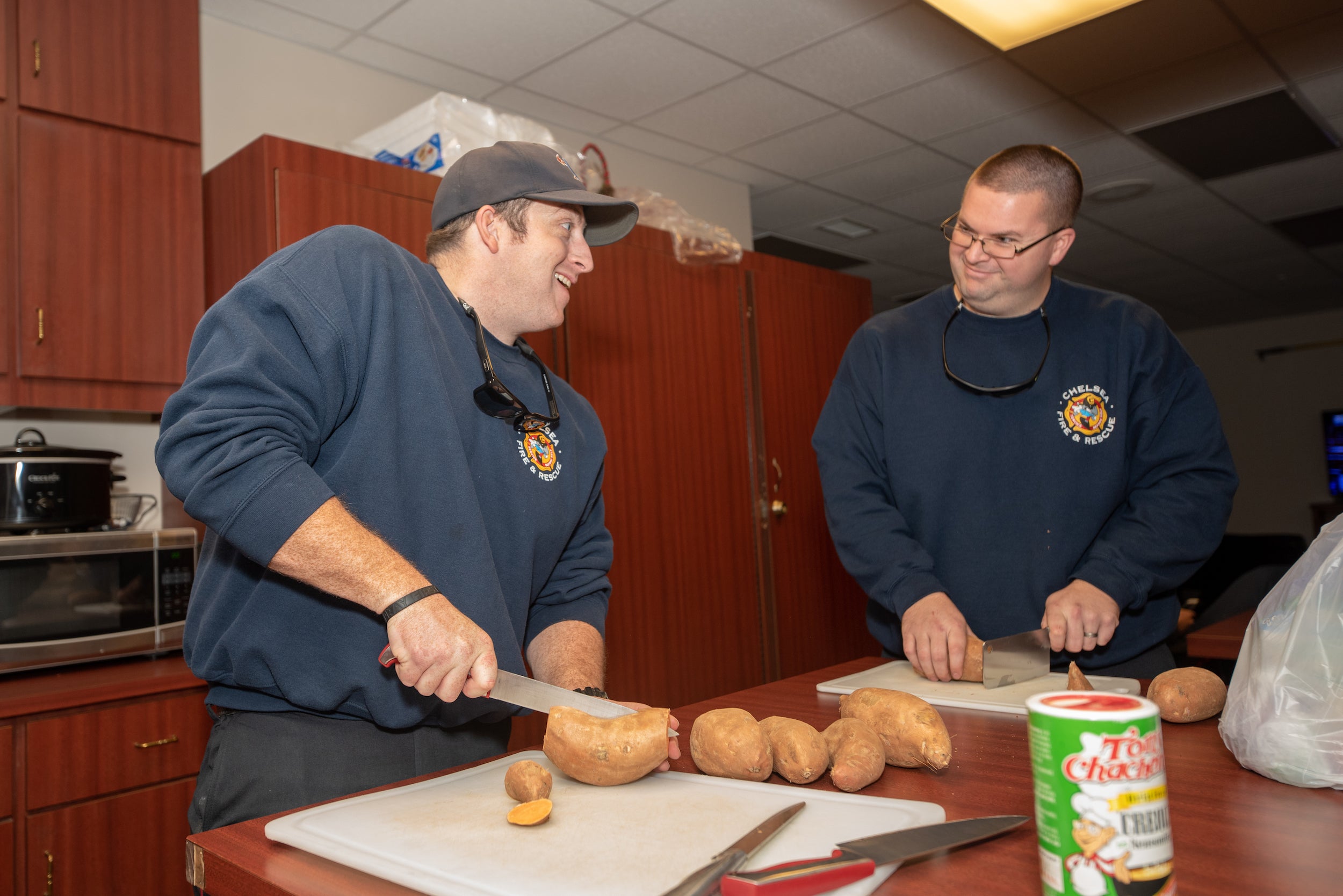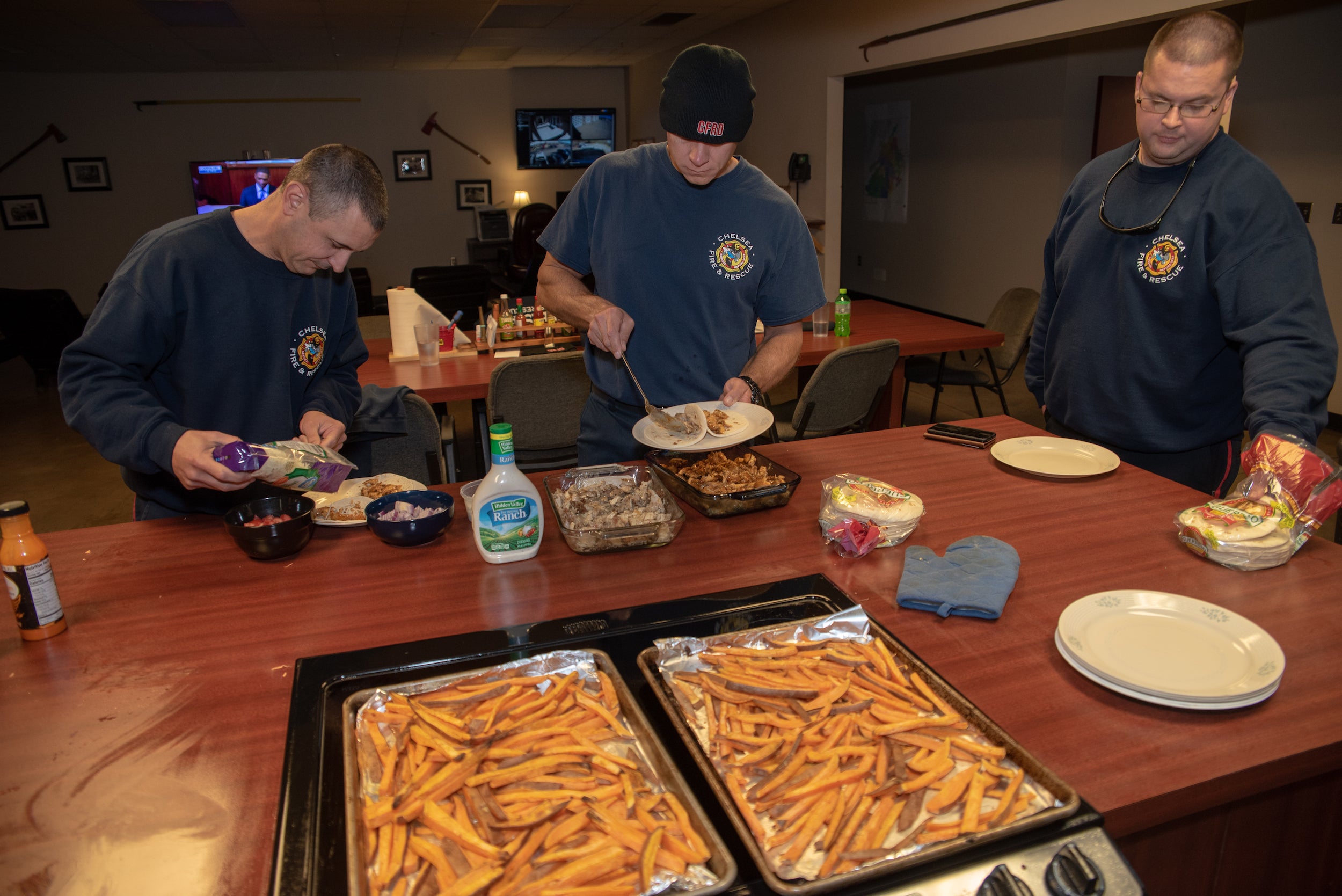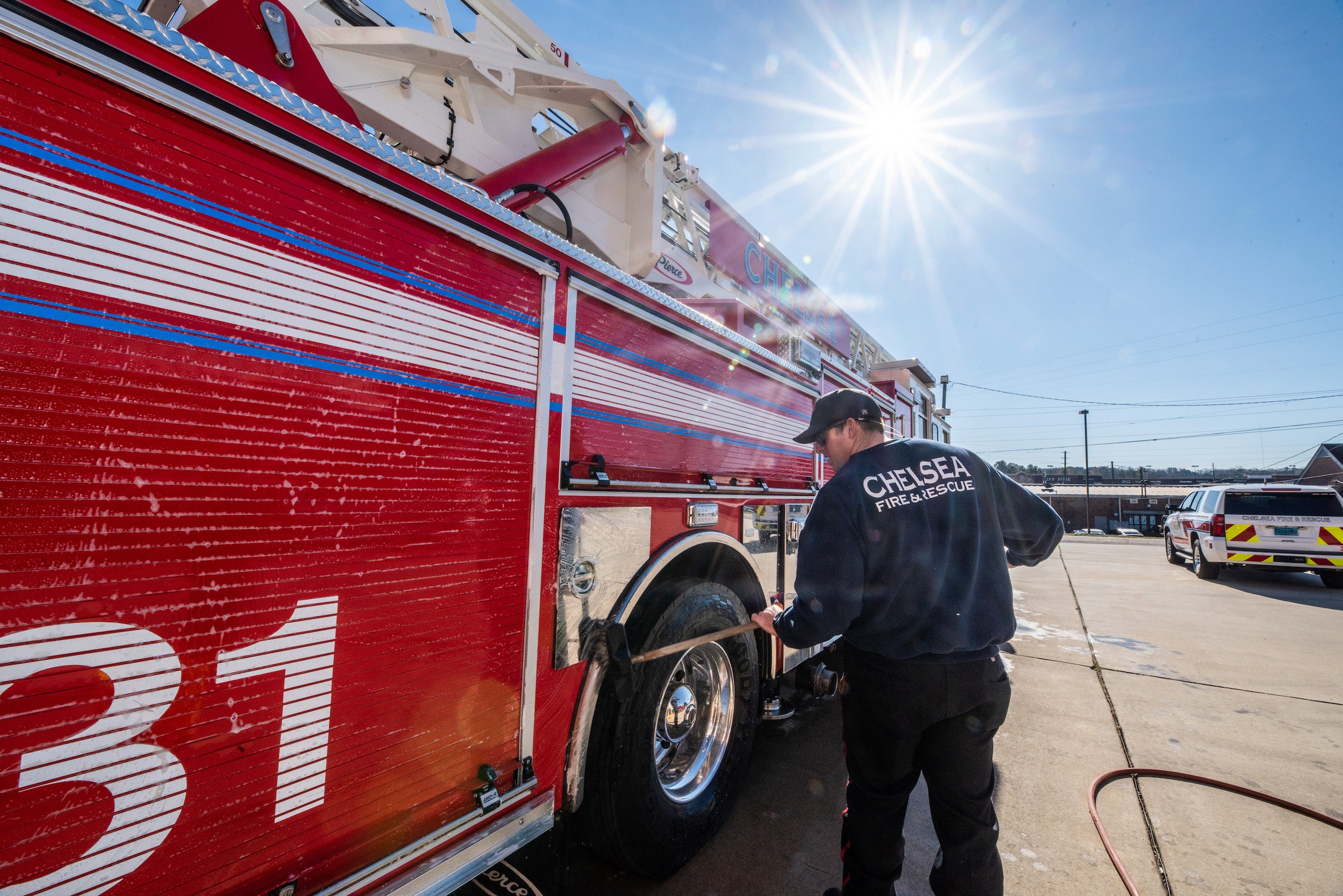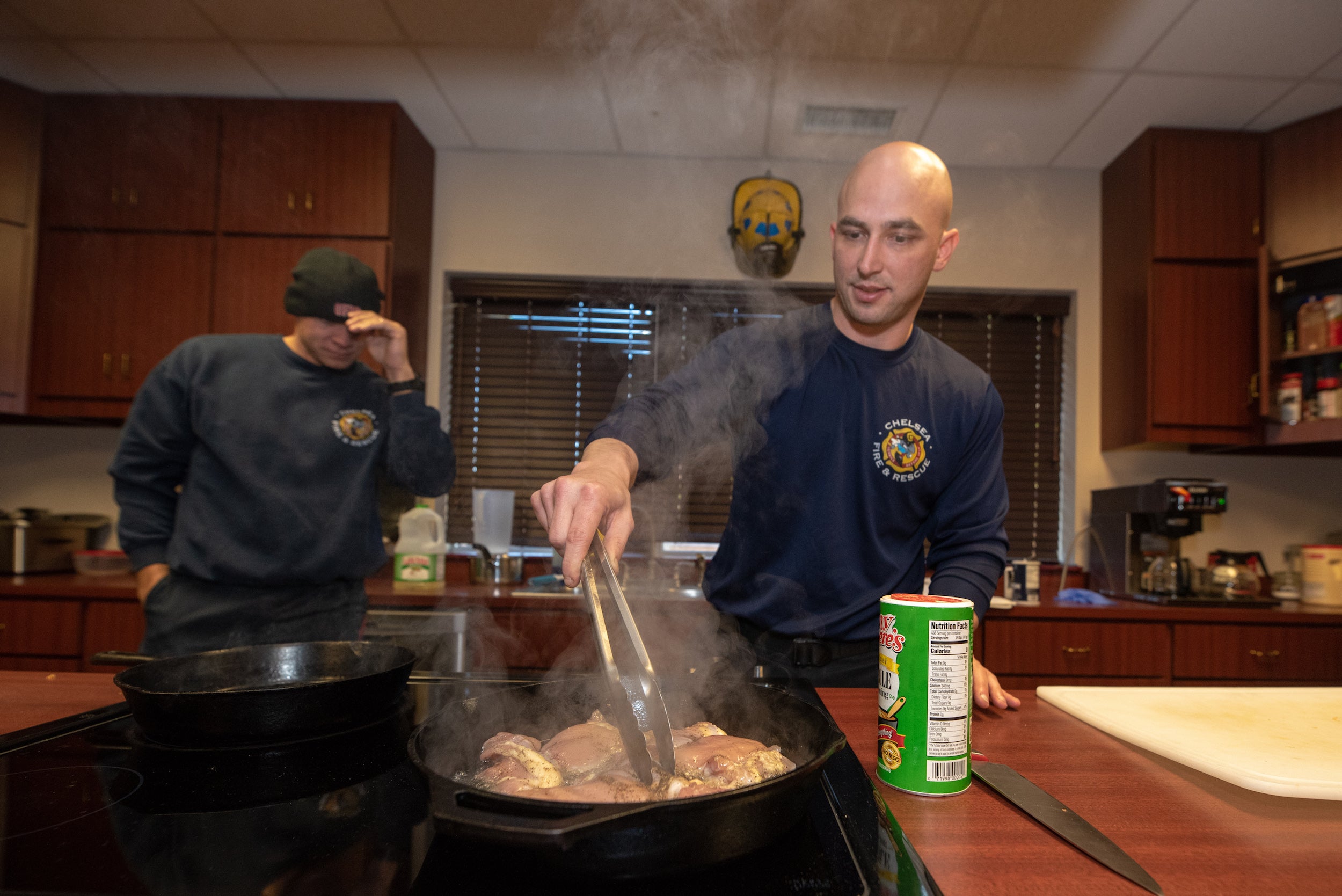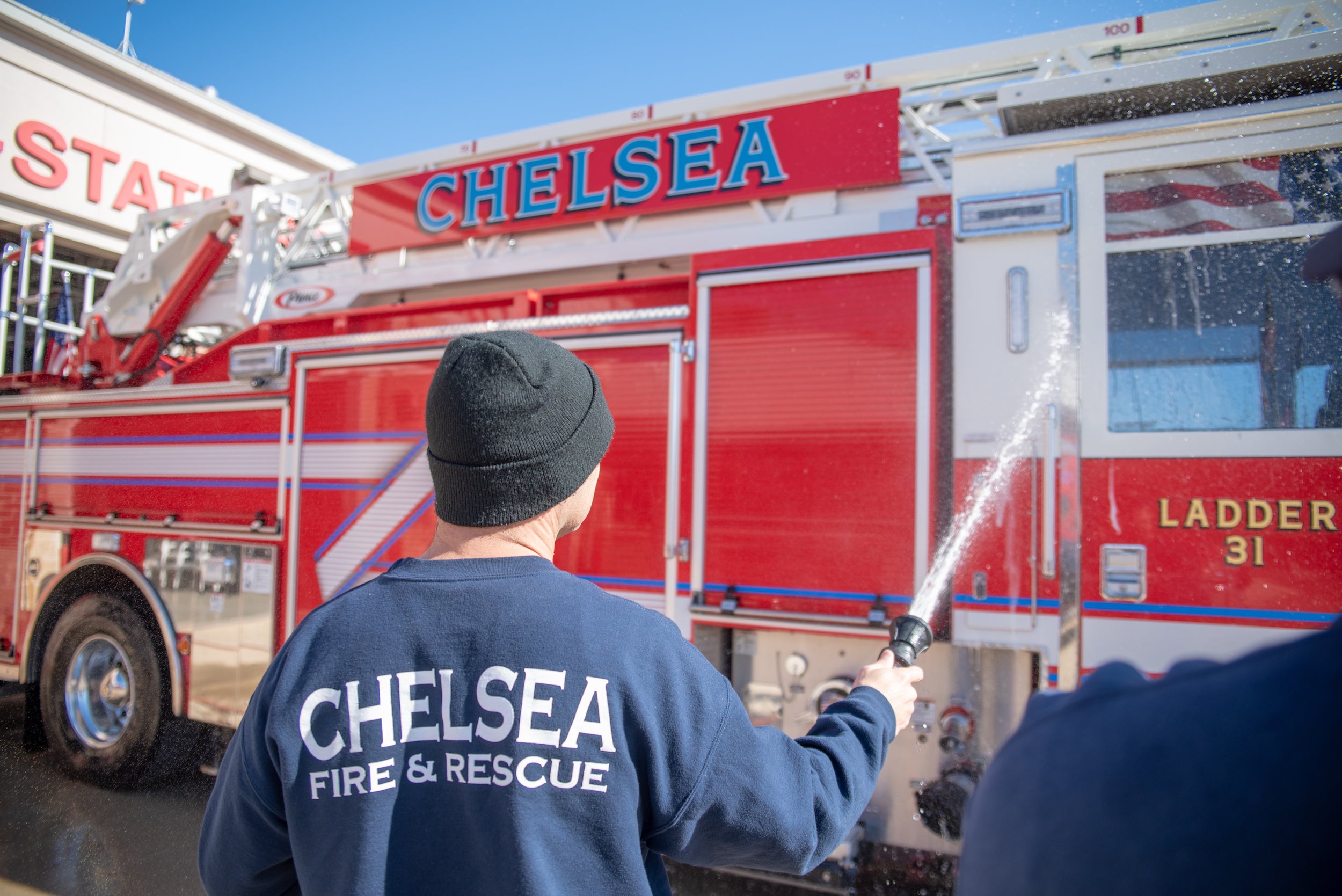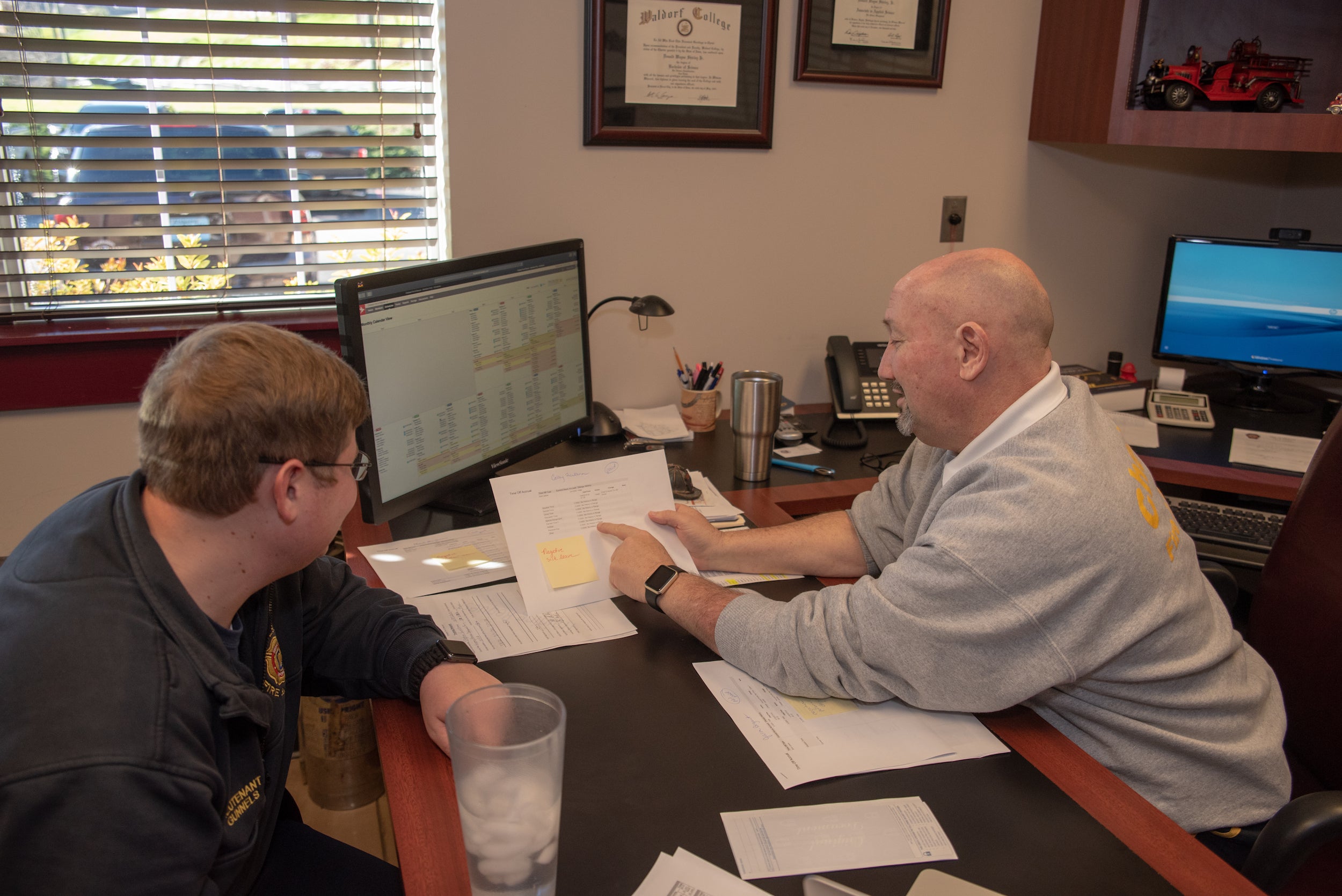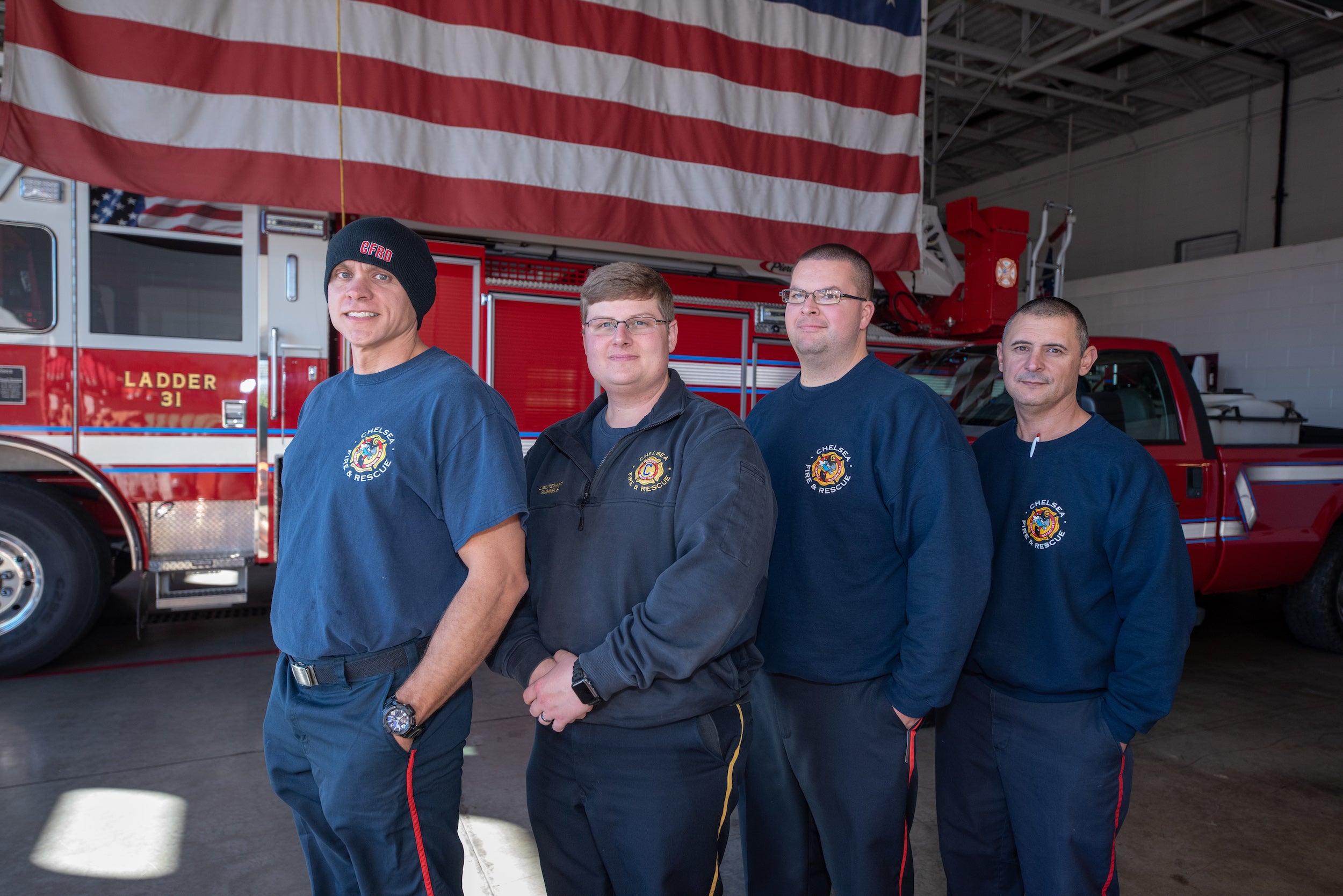PROFILE: Chelsea Fire & Rescue: Forged by fire
Published 4:52 pm Monday, February 24, 2020
|
Getting your Trinity Audio player ready...
|
Imagine you are asleep with a resting heart rate of about 40 beats per minute, and in less than five minutes you’re in the flames of a house fire, adrenaline pumping, with a heart rate of 180. It’s not an unusual shift in pace at 2 a.m. if you are firefighter in the city of Chelsea, but Lt. Stephen Gunnels and firefighter Zack Lee say you never really get used to it.
“That’s why this job is so terrible for you,” Lee says as they both erupt in laughter. It’s apparent from their back-and-forth banter that these men are more like brothers. “It’s a very physically taxing job,” Gunnels says. “You never really get a good night’s sleep at the station.”
Once firefighters have been in the profession long enough, their bodies won’t allow them to drift into a deep sleep. Instead, they are always in standby mode—listening and on edge. “There are those rare times when you’re in that window where your body is trying to get into that deep sleep, and then you get awakened by the tone in the middle of the night. And…it will startle you,” Gunnels says. “It’ll take your breath away and scare you to death, and then you realize where you’re at.”
“You’re trying to listen and hear where the call is and who’s supposed to be going, and you just woke up so you’re confused anyway,” Lee quips. In just a few short minutes with the men, it’s clear that Lee has a knack for finding the humor in his job.
When the alarm sounds, those responding to the call are expected to be out of bed and on the road in less than three minutes. Gunnels says it’s not as difficult as it sounds. It’s just one of those things firefighters have to get used to, but it helps that every firefighter on a shift does not respond to every call. Routine medical or basic life support calls only require a transport unit and shift commander to respond. An event of significance, like someone going into cardiac arrest, requires more assistance though. In addition to the shift commander, a pumper truck that requires an extra three people responds as well.
Over time, firefighters develop their own routines to get dressed at night. It helps that the they aren’t expected to put on their full uniform for certain types of calls; instead they wear pants, a T-shirt and work boots. Most of the men sleep in their physical training shorts and a Chelsea Fire and Rescue T-shirt, which makes it easier for them to slip on their uniform and go.
You’d think all the commotion that surrounds a call would make it hard for the men to get back to sleep when they return to the station, but Lee and Gunnels say that’s not the case. “Yeah, I knock right back out,” Lee says without hesitation. After 14 years in the profession, Gunnels says he can go right back to sleep in the blink of an eye: “It’s just one of those things where your body just learns to adapt and overcome and you take what you can get.”
Just as essential to the sleep patterns of a firefighter is their comradery. Working 24-hour shifts followed by 48 hours off means they spend about as much time with their work “family” as they do with their actual families. A lot of the them work at two fire departments too, which means instead of spending 24 of 72 hours together, they spend 48 out of 72 hours together. “I’m with this guy two out of three days,” Gunnels says in reference to Lee. “You could even say it affects you at home sometimes too because you live with all guys two out of three days most of the time, and then you go home to your family and it’s not like living with a bunch of dudes anymore,” Lee quips again.
Currently all of the firefighters at Station 31 are men, and they’ve formed a brotherhood like no other. Much like family, everybody knows what’s going on in everyone’s personal life, and they love to joke around with each other. But they know how to get serious when the time calls for it. It can be hard for a civilian to comprehend what firefighters see on the job, but if firefighters ever need someone to talk to, they need only look around. “When you see something and it ends up bothering you, you’ve got nine other guys to talk to who just saw the same thing with you,” Lee says.
With so much time spent at the fire station, the men think of it as their second home. The living quarters at the station have individual bedrooms for each person working the shift, and each room has three closets that are split between the three shifts. At Station 31, six people work on each shift and are responsible for cleaning, doing chores, grocery shopping and cooking meals for themselves. “We go into some nasty places and less-than-clean environments, so the turnout gear does not come in the station,” Gunnels says. “It stays out in the bay. You just don’t want to bring all of that into your space.” The men also take off their work boots before entering their rooms. When their shift is over, they shower and change clothes before going home to their families.
Those worlds aren’t always separate though. It is normal for a firefighter’s family to visit him at the station, Gunnels says. When they have to work on a holiday, they make sure to have a big celebration with their families, and everyone at the station tries makes make sure that the men who have children get to go home on holidays like Christmas, even if it’s just for a few hours. That’s just the kind of thing you do for family.


